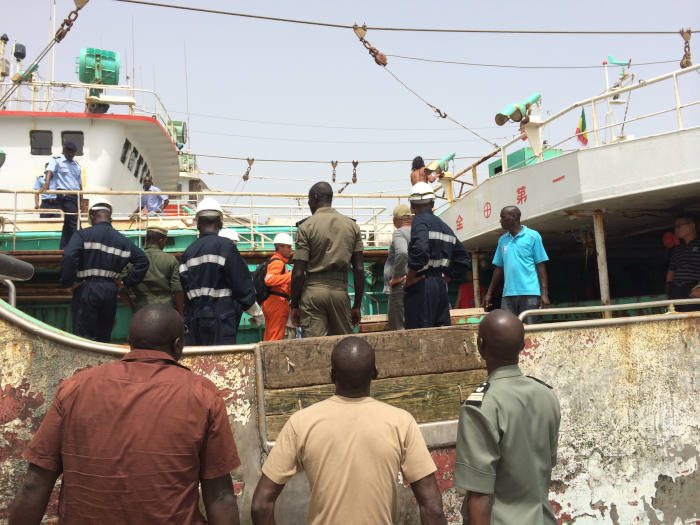-
07 January 2021
Category : Opinion
“SEACOP has created the bridges necessary to carry out future operations to fight drug trafficking”
Alberto Morales, the chief inspector with the National Police and key expert with SEACOP, the port cooperation project, tells us about the progress made in the four phases of the European cooperation project, which is about to end.

Between 2003 and 2008, a notable increase in drug trafficking (cocaine) by sea was observed in Europe. The state security forces and bodies (SSFB) joined together to create what was later called by the police a “retaining wall“, which led to the usual transport routes being diverted to Africa as an alternative route.
The SEACOP project was born out of this context. The project required on-site visits to the producing, transit and recipient countries for the drug, requiring adaptation and consensus regarding the needs of all these countries in a project that contributed to this fight.
This gave birth to the SEACOP project, a project based on four main pillars: intelligence teams (MIU); port control teams (JMCU); databases and cooperation at the regional and transregional levels.
It is in Africa where the first efforts were initially focused after 2008 and where remarkable advances were seen. For the first time we were able, as specialists, to combine the efforts of the agencies operating in the three countries in which SEACOP was active: Senegal, Ghana and Cape Verde.
Language has always been a slight problem for them hindering fluent communication and even exchanges relating to experiences or working methods, but, little by little, through the different face-to-face encounters between them, they have managed to establish several communication channels between the teams.
The police specialists who participated in the project confirmed that there was a clear need to standardise the training given to the agents or officers taking part in the project, although many of them had had little contact with computers or the other means used to gather intelligence and carry out searches on vessels.
The activities undertaken in these three countries allowed the European Union to consider extending the project in a phase II, with appropriate objectives, to various African countries including: Sierra Leone, Togo, Benin and Ivory Coast, among others, which was a real challenge for all the project members.
Later phases confirmed the need to involve not only the countries that were the destination for some of the drugs produced in Latin America, but also to continue expanding in successive phases III and IV to other regions such as the Caribbean and the drug-producing and transit countries in Latin America.
The Caribbean area is especially sensitive to cocaine trafficking in pleasure boats, which is why SEACOP has established alliances with other projects already operating in the area, in order to enhance the strengths and reinforce the weaknesses, such as connections between the islands, training on boat profiling, elements that raise the suspicions of officers when they visit the marinas, teamwork and obviously to provide them with the necessary material to be able to carry out searches on boats without damaging them too much.
This same training, adapted to the needs of each country, was offered by specialists to the different officers participating in the project. Our experience, after more than twenty years fighting drug trafficking, has been put at their service and it is very gratifying to see how, little by little, they acquired the level required to grow the SEACOP family.
The producing countries are highly important to the project, countries like Colombia, with the experience acquired in its daily fight against drug trafficking, or Argentina, where the problems experiences along its river system are added to the problems at its ports. This was a challenge that has, obviously, been reflected in the work on both regional and transregional training, in which the countries each played their part regarding the way in which they carry out the work, both at their borders and at the international level.
However, the greatest problem we have encountered has undoubtedly been the turnover of officers in their posts, the need for a commitment to permanence has been one of the weaknesses that will definately be taken into account in future projects.
We are left with the impression of a job well done, with the pleasure of knowing that the necessary bridges have been created to carry out future operations to combat drug trafficking and, above all, of creating a network of contacts that is one of the greatest values contributed by this project.
We leave behind many hours of work, many cases analysed, and hours of training that have always given us a sense of satisfaction knowing they have strengthened the implementation of the tasks that are currently being carried out and that will, at least, continue in the coming years to be a reference in the fight against maritime cocaine trafficking.
Alberto Morales, chief inspector with the National Police and key expert on the SEACOP project
The views and opinions expressed in this blog are the sole responsibility of the person who write them.






